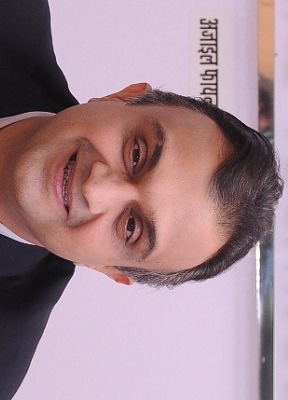Telecom
Terror Attacks Threaten $25Bn Investment

The rising terrorist attacks on information and communications technologies (ICTs) infrastructure is threatening the over $25 billion investment in the telecommunications sector and creating an atmosphere of uncertainty, Nigeria CommunicationsWeek can now report.
The telecom industry which rose from the Dark Age and surged on private sector led investment in the last decade has become the new target of Islamic fundamentalists seeking to create a Muslim north and ban on western education.
Two weeks of coordinated attacks on ICT infrastructure has left many parts of Northern Nigeria without telecom services while operators count their losses.
In Borno state which appears worst hit, the MTN regional corporate office was razed and several other masts and BTS were also destroyed in the targeted attack, ostensibly carried by Islamic Boko Haram sect.
Wale Goodluck, MTN Corporate Services Executive (CSE), in statement reviewing the weeks’ events, stated that the destruction has affected mobile operations drastically.
He did rule out the possibility of the company pulling out of the region.
However, analysts’ believe the worst could still happen and warned of the adverse consequences if the sect is not reined in.
MTN’s out-sourced call centre operation has already pulled out of Jos, Plateau state, following the unending violence in the Northern Middle Belt state.
It is not clear yet the extent of damage the attacks have done to the nation’s economy.
Nigeria Communications Commission (NCC), the industry regulatory agency revealed that to date, the sector’s contribution to direct foreign investment (FDI) to the economy stood at $25 billion.
But with the targeted attacks against the sector, the huge optimism is threatened!
Gbenga Adebayo, chairman, Association of Licenced Telecommunications Operators of Nigeria (Alton), spoke of the collateral consequences of breach in telecom industry.
Adebayo warned that targeting telecom infrastructure for specific destruction would cause untold hardship and stunt national economic growth.
“When a base station is put out of service, often the implications go farther than the immediate environment. And this is one of the things we have been telling agencies of government which take delight in shutting down operators’ base stations. There are base stations which are hubs for an entire region. When it is out of commission, the entire region is blacked out. It’s as simple as that.” Adebayo added
Nodding in agreement, Lanre Ajayi, president, Association of Telecommunications Companies of Nigeria (Atcon), urged that the government to urgently enact law declaring ICT facilities ‘critical national infrastructure.’
“Until the government makes telecom facilities, critical national infrastructure and provide tight security for them, these ugly incidents may continue to happen. But now, everybody including the operators, common people and even the terrorists are suffering the fatalities of this action.
That is why it should not be left as the burden of the operators alone. Time to look at these issues differently is now.” Ajayi said
For now, industry operators are still counting their losses and are not able to volunteer information on cost implication of the terror attacks.
A publicist for a major telecom company said cost implications are enormous.
“It is not yet time to talk on that, at the appropriate time we will speak. The industry is computing its loss both in human and infrastructure” the publicist said
Dr. Eugene Juwah, executive vice chairman/CEO NCC, said that telecom contribution to Nigeria’s GDP earnings has risen to 2.39 per cent by 2007.
It was a sharp rise considering it recorded only 0.06 per cent before the turn of the century in 1999.\
He gave further encouraging statistics noting that the entire ICT sector contribution to the national GDP stood at 8.2 per cent in 2010. This figure is little over 50 per cent of the projected GDP contribution by 2015.
Mrs. Omobola Johnson, Minister of Communications Technology, said at an industry-wide stakeholders’ meeting early in 2012 that the ICT sector would contribute about 15 per cent to the nations’ GDP by early 2015.
She was optimistic that new investment inflow and optimum capacity utilization would enhance rapid development of the sector.
Telecom
MTN, BUA, Dangote & Other Industry Giants Triumph at NGX Made of Africa Awards

Nigerian Exchange Group (NGX) hosted its annual Made of Africa (MOA) 2025 Awards on Monday, February 4, 2026. The event, held during the NGX year-end celebrations, brought together regulators, listed companies, and market operators such as MTN, BUA, Dangote, Transcorp, to celebrate achievements in compliance, sustainability, and market performance.

In his opening remarks, Dr. Umaru Kwairanga, the Chairman of Nigerian Exchange Limited, said “Excellence in compliance, sustainability, and several other categories recognises the fact that capital market operators and quoted companies must be standards not only in terms of the size of their operations but also adherence to regulations and best practices of corporate social responsibilities.”
He emphasised that the awards serve as a benchmark for excellence. He noted that the 2025 honourees demonstrated significant improvements in branding, customer service, and operational standards despite a challenging economic environment in Nigeria.
Among the evening’s significant winners was MTN Nigeria, which was honoured for its commitment to corporate transparency. The technology giant received the award for Leadership in Sustainability Reporting, emerging as the winner in a category that included Seplat Energy, BUA Cement, and Transnational Corporation of Nigeria PLC.
The award recognised the brand’s adherence to both national and global reporting standards, reflecting its role in advancing environmental, social, and governance (ESG) practices within the Nigerian corporate space.
Tobe Okigbo, Chief Corporate Services & Sustainability Officer, MTN Nigeria, said “This recognition for Leadership in Sustainability Reporting underscores our commitment to transparency and aligning with global best practices.
“As the capital market moves toward greater accountability, MTN Nigeria remains dedicated to demonstrating resilience and faith in the Nigerian economy through comprehensive and standard-compliant reporting.”
The ceremony saw several other major players in the financial sector secure multiple accolades. Chapel Hill Denham emerged as one of the night’s most successful firms, winning in categories including Fund Manager with the Largest Listed Fund Size and Market Operator with the Highest Value of Foreign Portfolio Investment (FPI) Transactions.
Other notable winners included: Cardinal Stone Securities Limited, named Broker of the Year and Equity Trader of the Year, Dangote Cement was awarded Best Issuer in terms of Fixed Income Listings, BUA Cement PLC was recognised as the Most Compliant Listed Company, and Transnational Corporation of Nigeria (Transcorp) PLC received special recognition for Capital Market Excellence in Equity.
Mr. Jude Chiemeka, the Chief Executive Officer of Nigerian Exchange Limited, congratulated the recipients, noting that the market saw a 51% close in the All-Share Index last year, making it the second-best performing market globally. He urged winners and nominees alike to continue striving for excellence to further the aspiration of a $1 trillion Nigerian economy.
Telecom
4G Dominates Nigeria’s Broadband as 5G Lags Behind

Nigeria’s broadband landscape remains anchored by 4G LTE at 52.95% market share in December 2025, with 2G holding steady at 37.37%, while 5G penetration crawls at just 3.77%, per Nigerian Communications Commission (NCC) data.

4G’s dominance stems from urban smartphone migrations and MTN-Airtel infrastructure expansions, fuelling the digital economy, as 2G persists in rural areas due to feature phone reliance and a stubborn device gap.
5G growth stalls from high smartphone costs amid inflation, telco preference for 4G’s quicker returns over capital-heavy 5G rollouts, and limited mainstream apps beyond elite urban streaming in Lagos and Abuja.
Broadband subscriptions topped 112 million, lifting penetration to 51.97%—up from 42.2% in October 2024—crossing the halfway mark for the first time, though monthly gains of 2-3 million slowed mid-year amid population growth and regional disparities.
The NCC’s 70% target stays elusive, highlighting sustained urban-rural demand but underscoring needs for affordable devices, infrastructure, and use cases to accelerate high-speed access nationwide.
Telecom
Nigeria’s Internet Users Hit 148.2m Amid Data Cost Surge

Nigeria’s internet subscriber base surged to 148.2 million by December 2025, achieving 68.3% penetration, even amid 50% tariff hikes and naira depreciation, according to Nigerian Communications Commission (NCC) data.

MTN and Airtel dominated with 86% market share, Airtel adding 1 million subscribers in December alone, while Glo and 9mobile lagged as legacy players.
Data consumption exploded 35% to 13.25 million terabytes yearly, but Nigerians spent ₦20.87 billion daily—totalling ₦7.62 trillion ($5.58 billion)—as gigabyte prices doubled from ₦287 to ₦575.
User frustrations mounted from network failures, thousands of fibre cuts due to construction and vandalism between January and August 2025, and poor service quality despite billions in revenue. 4G LTE held 52.95% share as the workhorse, 2G clung to 37.37% in rural areas, and 5G remained a 3.77% urban luxury limited by device costs and base stations.
The NCC’s 70% broadband target fell short at 51.97%, though the ICT sector boosted Q3 GDP by ₦7.47 trillion and restored telco profits post-2024 losses.
In 2026, attention shifts to quality matching rising costs, with users urged to stay powered amid persistent “spinning wheel” woes.

 General News2 days ago
General News2 days agoJumia Targets Break-even in 2026 After Strong Q4 Surge

 General News2 days ago
General News2 days agoNigeria’s Banks Race to Meet CBN Recapitalisation Deadline Amid Verification Push

 General News2 days ago
General News2 days agoBOI, MTN Foundation Unveil N1Bn Fund for Women Entrepreneurs

 General News1 day ago
General News1 day agoUBA Unveils Diaspora Platform to Connect Global Africans with Investment, Wealth Opportunities

 E-Financial2 days ago
E-Financial2 days agoNo VAT on Land, Buildings and Rent Under New Tax Law — Oyedele

 E-Financial2 days ago
E-Financial2 days agoCBN Slams Up to N10m Fine on Banks and Cheque Printers for Security Breaches

 E-Financial2 days ago
E-Financial2 days agoIs Nigeria Borrowing to Survive or to Build?

 General News1 day ago
General News1 day agoLeo Stan Ekeh Foundation, Zinox Group To Invest 10B on 1000 University Tech Scholarships for Indigent Nigeria Wiz-kids














